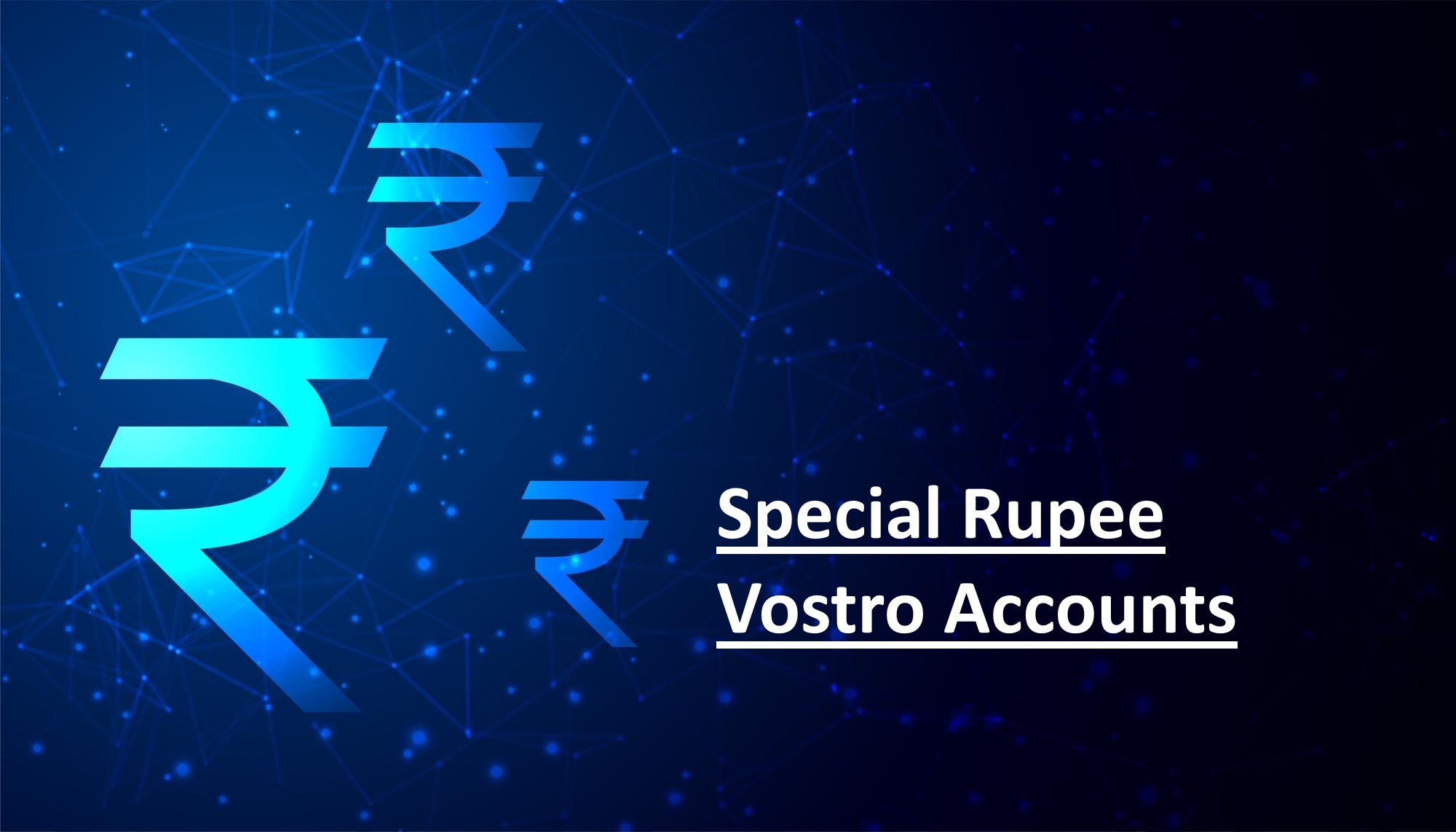RBI’s 2025 SRVA Reforms: How Indian MSMEs Can Use Rupee Trade to Beat Tariff Turbulence

The Reserve Bank of India (RBI) has quietly made one of its most significant trade policy interventions of 2025, one that could reshape how Indian exporters, especially small and medium enterprises (SMEs), do business in global markets. On August 5, 2025, the central bank announced that Authorised Dealer (AD) Category-I banks may now open Special Rupee Vostro Accounts (SRVAs) for foreign correspondent banks without requiring prior approval from the RBI. All compliance requirements under the Foreign Exchange Management Act (FEMA), as well as Know Your Customer (KYC) and anti-money laundering norms, remain fully applicable.
Just a week later, on August 12, RBI deepened the rupee trade framework by allowing surplus balances in SRVAs to be invested in Indian government securities. This gives overseas banks a genuine financial incentive to hold rupees rather than simply clearing them out after each transaction. By making INR holdings more productive, the RBI has effectively added an economic reason beyond convenience to use the rupee in trade settlement.
These may seem like technical changes, but for Indian exporters and MSMEs facing volatile currency markets and fresh tariff headwinds, they could prove transformative.
What exactly is an SRVA and why does this matter now?
A Special Rupee Vostro Account (SRVA) is an account held by a foreign bank with an Indian bank, denominated in Indian rupees. When an Indian exporter invoices a foreign buyer in INR, the payment is settled through this account rather than going through dollar or euro conversion. This reduces foreign exchange risk, speeds up payments and removes the need for expensive intermediary banking channels.
Previously, opening an SRVA required case-by-case approval from the RBI, a process that often delayed trade arrangements by weeks. With the new rules, any compliant AD bank can onboard foreign partners directly, provided all documentation and due diligence are in place.
The result? Faster market entry, smoother settlements and less currency friction are all highly relevant to Indian MSMEs competing in fast-moving global markets.
Why 2025 is the tipping point for INR trade
This policy shift comes against a backdrop of rapid change in global trade dynamics:
- Tariff headwinds in Western markets.
In August 2025, the United States imposed an additional 25% tariff on a range of Indian goods, with some categories effectively facing barriers as high as 50%. While negotiations continue, many SMEs in sectors like engineering goods, textiles, and chemicals are actively scouting for alternative buyers in Asia, Africa and the Middle East. - Expanding SRVA footprint.
As of mid-2025, 26 Indian banks have opened 156 SRVAs for 123 overseas banks across nearly 30 countries, including Russia, Sri Lanka, Mauritius, Tanzania and several Gulf and African markets. These accounts already provide the regulatory plumbing for INR trade, and the August rule change will accelerate operationalisation where deals were pending approval. - Investable INR balances.
By allowing SRVA surpluses to be invested in Indian government securities, RBI has given foreign banks a reason to keep INR on their books, making rupee settlement more sustainable and appealing in the long run - Digital payment linkages reinforcing corridor trust.
In 2025, UPI acceptance has gone live at scale in the UAE, enabling tens of thousands of merchants to accept INR-linked payments from Indian travellers and businesses. This builds familiarity and confidence with rupee-based settlement in broader trade relationships.
The India-UAE trade corridor:
The India-UAE corridor is uniquely positioned to lead in rupee settlement. The UAE is India’s third-largest trading partner, with bilateral trade already well above USD 80 billion and on track to surpass the USD 100 billion non-oil trade target well before 2030.
UAE banks have shown keen interest in operationalising SRVAs, and with RBI’s approval hurdle now removed, onboarding cycles that once took weeks can now be completed in days. This matters especially for SMEs supplying gems & jewellery, gold, food products and engineering goods to Dubai and Abu Dhabi, where settlement speed and currency stability directly affect competitiveness.
Beyond the Gulf
While the UAE corridor is most visible, SRVAs are also gaining ground in:
- Russia: Energy, metals and fertiliser trade have been central to INR settlement discussions post-2022.
- Sri Lanka and Mauritius: INR trade has grown steadily, with strong SME participation in textiles, agro products and engineering goods.
- East Africa: Tanzania and Kenya are seeing pilot INR settlements for machinery, auto components and pharmaceuticals.
- Central Asia: Kazakhstan and other emerging markets are exploring rupee invoicing to bypass dollar liquidity shortages.
Important reality check: This is not forced “de-dollarisation.” RBI and the government are positioning INR trade as a voluntary, corridor-by-corridor efficiency tool, not as a replacement for global currencies. Viral claims of a blanket dollar exit have been debunked repeatedly in 2025.
How MSMEs directly benefit
1. Faster go-to-market.
With no RBI pre-approval delays, Indian exporters can onboard buyers quicker, secure advance payments in INR and ship earlier.
2. Better margins through lower FX costs.
By avoiding double conversions (e.g., INR to USD to local currency), MSMEs save on foreign exchange spreads and protect margins in volatile periods.
3. Working capital efficiency.
Faster settlement cycles and INR receivable discounting by banks allow SMEs to free up cash for operations and new orders.
4. Market diversification in uncertain times.
With Western tariffs rising, INR settlement opens alternative demand corridors in the Gulf, Africa and Central Asia markets often underserved by dollar clearing banks.
5. Stronger compliance framework.
RBI’s move does not dilute FEMA or KYC standards. For overseas partners concerned about sanctions or AML risk, this clarity actually builds confidence in dealing with Indian SMEs.
Which sectors stand to gain first?
- Gems & Jewellery / Gold Trade – rapid settlement needs in Dubai.
- Auto Components and Industrial Machinery – exporters to Central Asia and Africa benefit from INR deals.
- Pharma Generics and Agro Products – steady SME-led shipments where currency costs are sensitive.
- Textiles and Apparel – especially as U.S. and EU tariffs force diversification to Gulf and African buyers.
The bigger picture
The August 2025 reforms, bank-led SRVA approvals and investable INR balances mark a clear shift from policy intent to practical execution. They make rupee trade faster, cheaper and more bank-friendly, giving Indian MSMEs a valuable tool to secure business in emerging markets at a time when tariff politics are rewriting global supply chains.
This is not a symbolic push to “replace the dollar.” It is a quiet, corridor-specific strategy to make the rupee the path of least resistance, a currency that’s simply easier and more efficient to use where buyers and sellers agree. For India’s MSMEs, that can mean the difference between holding orders steady and watching them migrate to more agile competitors abroad.











